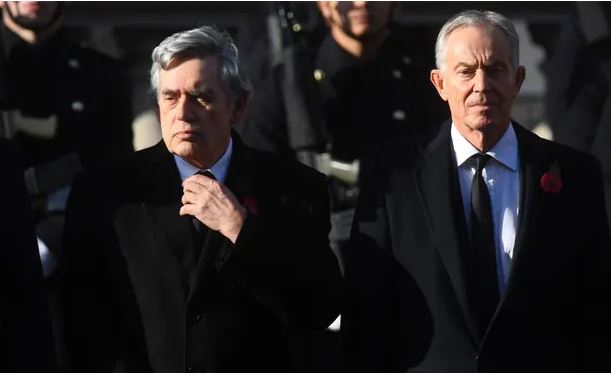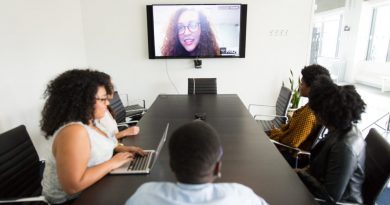Covid: more than 200 leaders urge G7 to help vaccinate world’s poorest
More than 100 former prime ministers, presidents and foreign ministers are among 230 prominent figures calling on the leaders of the powerful G7 countries to pay two-thirds of the $66bn (£46.6bn) needed to vaccinate low-income countries against Covid.
A letter seen by the Guardian ahead of the G7 summit to be hosted by Boris Johnson in Cornwall warns that the leaders of the UK, US, France, Germany, Italy, Japan and Canada must make 2021 “a turning point in global cooperation”. Fewer than 2% of people in sub-Saharan Africa have been vaccinated against Covid, while the UK has now immunised 70% of its population with at least one dose.
The plea comes as Johnson faces a rebellion from dozens of his MPs over cuts to the foreign aid budget, which have hit poorer countries and coronavirus research projects.
On Sunday Johnson said he would ask his counterparts at the G7 summit to “rise to the greatest challenge of the postwar era” by “vaccinating the world by the end of next year” but gave no specifics on funding or dose-sharing.
Among the vaccine letter’s signatories are Gordon Brown and Tony Blair, with the two former prime ministers putting aside past differences to join the effort to put pressure on the G7. Brown said the proposal would cost 30p per person per week in the UK “for the best insurance policy in the world”.
Prominent figures who have signed the letter include former UN secretary general Ban-Ki Moon, former Irish president Mary Robinson and taoiseach Bertie Ahern and 15 former African leaders including presidents Olusegun Obasanjo of Nigeria, John Mahama of Ghana and FW de Klerk of South Africa.
Other signatories include the UK’s former overseas development minister Lynda Chalker, Virgin’s founder Sir Richard Branson, the head of the Wellcome Trust, Sir Jeremy Farrar, Nobel Laureate for economics Bengt Holmström and the economist Lord O’Neill.
They argue that the investment is affordable and vital to stopping the spread of new coronavirus variants that could undermine current vaccines. “The year 2020 witnessed a failure of global cooperation, but 2021 can usher in a new era. No one anywhere is safe from Covid-19 until everyone is safe everywhere,” they say.
“Support from the G7 and G20 that makes vaccines readily accessible to low and middle-income countries is not an act of charity, but rather is in every country’s strategic interest, and as described by the IMF [International Monetary Fund] is ‘the best public investment in history’.”
The signatories of the letter say that polling suggests the public back them. A survey commissioned by Save the Children found that 79% of people in the UK who have a view think the G7 should pay to make the world safe. Across five countries – the US, France, Germany and Canada as well as the UK – leaving out the “don’t knows”, more than 70% thought their country should pay its share.
People of different ages, in different countries and with different backgrounds are united over the need for fair access to vaccines, said Kirsty McNeill, executive director of Save the Children, which is a member of a coalition of 75 organisations representing 12 million people called Crack the Crises. They want global action on Covid, climate change and support for struggling communities.
“They want the G7 to make the world safe again. Their publics will not accept anything less than a serious and fully funded plan to crack the global Covid crisis,” she said.
An estimated $66bn over two years is needed for the global vaccine effort. The former leaders say the G7 should pay two-thirds of the cost, according to the size of their economies.
“For the G7 to pay is not charity, it is self-protection to stop the disease spreading, mutating and returning to threaten all of us,” said Brown. “Costing just 30p per person per week in the UK, is a small price to pay for the best insurance policy in the world. Savings from vaccination are set to reach around $9tn by 2025.”
The first step, they say, is for the G7 nations to pledge 67% of the funding needed for the UN’s vaccines, tests and treatments programme, called the Access to Covid-19 Tools Accelerator (ACT-A). An allocation of special drawing rights totalling $650bn to low income countries by the IMF could enable them to pay for their share, said Brown.
“I’ve been looking at this question of how we pay for all this burden-sharing formula. People will say we don’t have enough money,” he told the Guardian. “Every country is about to get this grant, this money from the International Monetary Fund. They’re just about to get $21bn from the IMF. That would enable them to pay this and to pay their share of anything else.”
The G7 should also lead the way on dose-sharing, voluntary licensing agreements and temporary patent waivers to enable vaccine manufacturing to begin on every continent, the letter says. That would require pharmaceutical companies to share the technological knowhow and skills to make vaccines as well as the formula.
“Global economic policy alignment is vital. We were fortunate that, over the last year, in the initial Covid-19 recovery phase, most countries followed similar policies, resulting in an acceptable level of policy alignment. What we need now, in this next phase, is an agreed global growth plan with coordinated monetary and fiscal interventions to prevent an uneven and unbalanced recovery – and ensure a more inclusive, equitable and greener future,” it adds.
Source:https://www.theguardian.com/world/2021/jun/06/covid-global-leaders-urge-g7-to-help-vaccinate-worlds-poorest?utm_term=6b4dc47b1a4f80df07b770e8cb8842f7&utm_campaign=GuardianTodayUK&utm_source=esp&utm_medium=Email&CMP=GTUK_email




